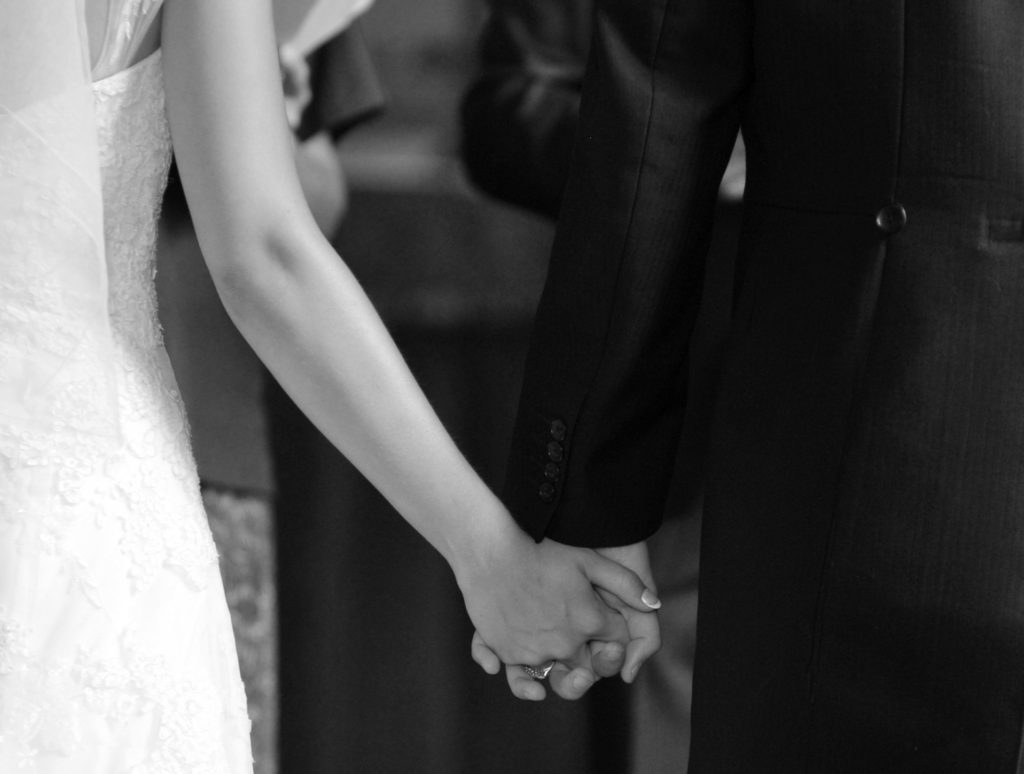Several people have written to me to ask how they can get married.
Under the new coronavirus law, weddings are banned. As a result, churches and civil registrars have both closed their doors.
We appear to have lost our right to marry.
Societies throughout history have given special legal privileges to those who marry. In exchange for a publicly stated commitment to a life spent together, the government currently gives us substantial inheritance rights, pension rights, a small tax break for some … and a whole raft of protections if the marriage ends.
Under normal circumstances, marriage is and should be the best value legal agreement anywhere. All that for two visits to your local civil registrar and a total bill of £131, including certificate.
But is it true? Are marriages – at least the legal bit – banned? It’s a fair question given concerns about the future.
Prime Minister Boris Johnson must be more aware of this than most. He has expressed his intent to marry by getting engaged. But he isn’t married yet. Should Boris have succumbed to covid-19, his pregnant fiancee Carrie would have no legal rights to his estate to help her. And vice versa of course.
Perhaps it’s helpful to remind ourselves why society values the act of marriage – rather than merely the act of living together – with all these special legal privileges.
It does so because stability is crucial for society. Of course we can bring up a child perfectly well on our own. But it’s a whole lot easier, and the outcomes on average tend to be a lot better, if we can do it as a couple.
Societies have understood that marriage goes with the grain of human nature. The act of marriage massively improves our chances of staying together. Whether by cause or effect, the component parts of a marriage encourage stability.
The act of marriage implies:
- A decision. Unlike other big relationship transitions, such as having a baby or moving in together, marriage does not ‘just kind of happen’. Few people drift into marriage or find themselves married by mistake. It’s what both of us want. It’s a deliberate decision.
- A clear signal of equal lifelong commitment. There’s not much room for doubt or ambiguity about our intentions when we marry. We are sending a really clear and unambiguous signal to each other about our mutual plans for a life together. We are also showing real equality. With both of us equally committed for life, there is much less scope for one of us holding the other to ransom.
There’s also good evidence that having more family and friends around when we get married boosts both happiness and stability. Choosing one person for life – and rejecting all the other possible contenders – is a risky decision. But when all around are saying ‘great choice’, it gives us affirmation and confidence that both of us have done the right thing.
We all know that we can’t do wedding parties right now. For sensible reasons, wedding parties have been banned under the new coronavirus law.
But five people is all it takes for the legal ceremony. Surely it is not beyond the whit of man to work out a way five people can sign a register while maintaining the appropriate distance?
So have marriages been banned as we all assume?
Apparently not. I am told that the Ministry of Justice have not banned the legal ceremonies, just the celebrations.
It’s easy to understand why registrars and churches have closed their doors as a result. The law says weddings are banned.
Government must now urgently clarify that it’s not marriages it has banned but weddings.

